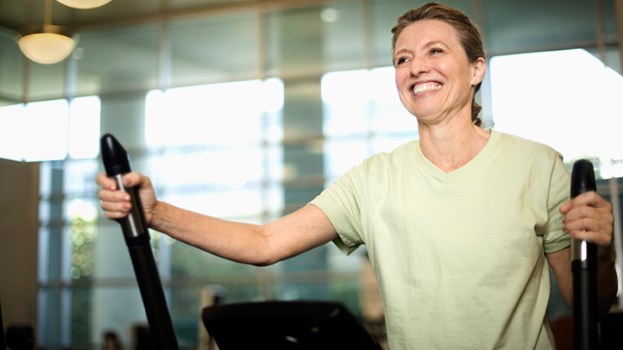he Zika virus is "is now spreading explosively" in the Americas, the head of the World Health Organization said Thursday, with another official estimating between 3 million to 4 million infections in the region over a 12-month period.
"The level of concern is high, as is the level of uncertainty," Dr. Margaret Chan, WHO's director-general, told her organization's executive board members. "We need to get some answers quickly."
The lack of any immunity to Zika and the fact that mosquitoes spreading the virus can be found most "everywhere in the Americas" -- from Argentina to the southern United States -- explains the speed of its transmission, said Dr. Sylvain Aldighieri, an official with the WHO and Pan American Health Organization.
Aldighieri gave the estimate for Zika infections (including people who do not report clinical symptoms) based on data regarding the spread of a different mosquito-borne virus -- dengue. He acknowledged the virus is circulating with "very high intensity."
Some 80% of those infected with the Zika virus don't even feel sick, and most who do have relatively mild symptoms such as a fever, rash, joint pain or pink eye. But there are major worries about the dangers pregnant women and their babies face.
Chan said that, where the virus has arrived, there's been a corresponding "steep increase in the birth of babies with abnormally small heads and in cases of Guillain-Barre syndrome." Having small heads can cause severe developmental issues and sometimes death. Guillain-Barre is a rare autoimmune disorder that can lead to life-threatening paralysis.
The WHO's Dr. Bruce Aylward cautioned there was no definitive link between Zika and these disorders but sees a legitimate reason for concern. The Centers for Disease Control and Prevention's Dr. Anne Schuchat said there is a "strong" suggestion they are connected.
Complete Zika virus coverage
While studies are underway to determine any links, millions of people live in areas with real fears about what this virus can do.
Pregnant women, their babies at high riskAfter first being detected in 1947 in a monkey in Uganda, Zika was most often found along the equator from Africa into Asia. Nine years ago, new cases popped up in islands in the Pacific Ocean.
The children of Zika: Babies born with disorder linked to virusLast year, the virus made its way to the Americas -- with devastating results.
Since Brazil made its first discovery of Zika in May, the number of cases there and elsewhere in the Americas has grown exponentially. The virus had been thought to be relatively harmless over the long term, but that view changed late last year.
Health authorities began to suspect a connection between Zika and neurological ailments, especially in fetuses and newborns. Brazil alone has reported more than 4,000 cases of microcephaly -- a neurological disorder resulting in the births of babies with small heads -- in infants born to women infected with Zika while pregnant.
Since Brazil made its first discovery of Zika in May, the number of cases there and elsewhere in the Americas has grown exponentially. The virus had been thought to be relatively harmless over the long term, but that view changed late last year.
Health authorities began to suspect a connection between Zika and neurological ailments, especially in fetuses and newborns. Brazil alone has reported more than 4,000 cases of microcephaly -- a neurological disorder resulting in the births of babies with small heads -- in infants born to women infected with Zika while pregnant.
Map: Tracking Zika virus"Zika is not a new virus," the CDC's Schuchat said. "But what we are seeing in the Americas is new."
The mosquito-borne disease is in 23 countries and territories in the Americas, according to Chan.
There have been 32 documented cases in 12 states and the District of Columbia, though all of those people got infected in other countries. (There have been 19 laboratory-confirmed cases in Puerto Rico and one in the U.S. Virgin Islands.)
The states where Zika virus has been confirmed among travelers returning from affected countries are Arkansas, California, Florida, Hawaii, Illinois, Massachusetts, Minnesota, New Jersey, New York, Oregon, Texas, Virginia and the District of Columbia, according to health departments.
Schuchat expects the number of travel-associated U.S. cases to rise and for people to contract the disease from mosquitoes here (though she downplayed widespread transmissions).
There will likely be more outside the United States as well.
"We expect more countries to be affected," Schuchat said.
WHO calls emergency meetingChan has called an emergency committee meeting Monday in Geneva, Switzerland, to address the Zika virus' spread and its ramifications.
The gathering will aim to determine the appropriate "level of international concern," recommend measures for the most affected countries to take and assess Zika's possible association with neurological disorders, the WHO's Aylward said.
"There is a lot of uncertainty about some of the real basics about this disease," Aylward said from Geneva.
U.S.-based researchers Daniel Lucey and Lawrence Gostin had called for just such a meeting this week in the Journal of the American Medical Association, criticizing the WHO for not stepping up sooner.
"The very process of convening the committee would catalyze international attention, funding, and research," Lucey and Gostin wrote in an article published Wednesday. "While Brazil, PAHO and the CDC have acted rapidly, WHO headquarters has thus far not been proactive, given potentially serious ramifications."







































